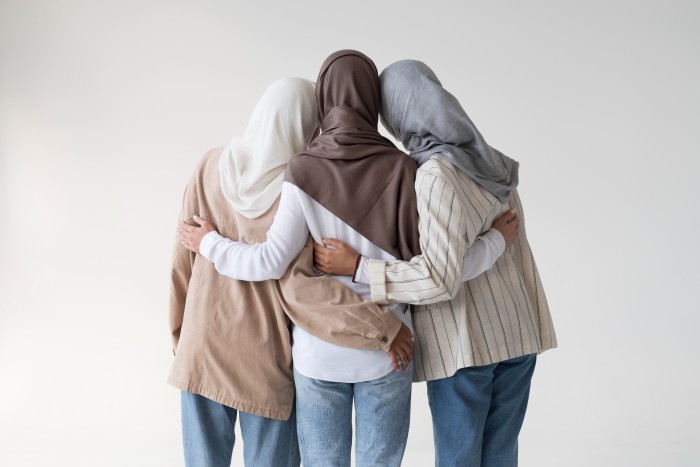IMANA NEWS
Participate in Ramadan 2025 With IMANA
10 March 2025

Every ninth month of the Islamic Lunar calendar’s year, Muslims around the world celebrate Ramadan. Regarded as a sacred period by the Muslim religion and culture, Muslims are encouraged to fast, abstain from food from dawn to sunset, while serving Allah and fellow Muslims.
The date of Ramadan varies based on the moon cycle. Ramadan 2025 officially began on February 28 and will conclude on the evening of March 29 or 30, depending on the moon sighting in each geographical location.
Join us as we explore what Ramadan is, its origins, significance, and how you can take part.
Origin and Significance of Ramadan in Islam
Ramadan is rooted in the Arabic term ar-ramad which means scorching heat. It traces its origins to the month when the angel Jibril (Gabriel) revealed the first verses of the Quran to the prophet Muhammad in 610 AD. This revelation, called Laylat Al Qadar (The Night of Power), marks the beginning of Islam’s most sacred texts—the basis of Muslim beliefs and religious practices.
This sacred time is dedicated to prayer, fasting, reflection, selflessness, and serving the community through acts of kindness and generosity. Muslims also make a deliberate effort to abstain from unholy behavior like lying, gossiping, fighting, and any form of violence and discord. It is a time for individuals to strengthen connection with Allah and our brothers and sisters in faith.
Fasting During Ramadan
The sacred period of Ramadan is a time of fasting or abstaining from food and water while the sun is out. This means up to 16 hours without meals or snacks. All Muslims are required to fast this way except for those with special conditions like the sick, the elderly, pregnant women, breastfeeding mothers, young children, women experiencing menstrual periods, and long-distance travelers.
However, fasting during Ramadan does not mean completely denying oneself of food and water. Rather, Muslims are encouraged to consume nutrient-dense food at specific times of the day as part of their good deeds and for sustenance.
Muslims are allowed to consume food during the Suhoor or pre-dawn breakfast and Iftar or the evening meal. Suhoor is observed at around 4 am before the first prayer of the day, while iftar is shared after the sunset prayer, usually around 7:30 pm.
What We Can Eat During Suhoor and Iftar
During the hours-long daily fasting, Muslims consume highly nutritious, satiating, and hydrating food. These include complex carbohydrates like brown rice, oats, quinoa, and whole wheat bread.
Individuals will also ingest protein-packed foods like cheese, milk, eggs, yogurt, nuts, lentils, and lean meat. Nutritious water-rich fruits and vegetables like dates, watermelon, cucumber, etc. are other options. Fasting is accompanied by generous hydration through water, smoothies, herbal teas, and juices.
Muslims break their fast after the final prayer of the day with a full, hearty meal consisting of appetizers, main dishes, sides, desserts, and beverages. These meals are typically shared with other Muslims.
Suhoor is considered a blessing because it provides strength throughout the day, allowing us to worship Allah in prayer.
The key to Suhoor and Iftar is a balanced diet that offers sustained energy and protection from dehydration.
Prayers During Ramadan
In addition to the five daily prayers, we can engage in other voluntary prayers during Ramadan. These include:
- Tarawih or Night Prayers, recitations of long portions of the Quran
- Tahajjud or late night prayer done before Suhoor
- Dua or prayer for forgiveness, guidance, and supplications
These additional prayers deepen our connection with Allah, bringing spiritual renewal and blessings throughout the holy month.
What Acts Are Prohibited During Ramadan?
Apart from abstaining from food and water during fasting hours, certain behaviors and activities are either prohibited or discouraged:
- Neglecting prayers
- Overindulging during Iftar as it can cause bloating or indigestion
- Skipping Suhoor because it means rejecting the blessing of gaining strength to worship Allah during fasting and prayer
- Wasting food
- Eating refined sugars, ultra-processed foods, and other empty calories because they do not provide the right nutrients to sustain energy during fasting
- Failing to drink water
- Inappropriate behavior such as fighting, gossiping, lying, indolence, speaking curse words, wearing revealing clothes
- Drinking alcohol, smoking, chewing gum
- Playing loud music
- Engaging in sexual activities
By steering clear of these behaviors, we can maintain the purity and purpose of Ramadan 2025, ensuring a more meaningful and fulfilling observance.
FAQs About Ramadan 2025
In this section, we answer some of the most common questions we receive about Ramadan.
Can Muslims with blood pressure issues fast?
Individuals with blood pressure issues can fast as long as their blood pressure is well-managed. They may also take the prescribed medicines outside fasting hours if their doctors deem it safe.
Meanwhile, patients with low blood pressure may join the fast but must increase their water and salt intake to avoid dehydration.
Can people on dialysis fast?
No they cannot. To make up for it, they must perform fidyah or payment to feed the poor.
Can you kiss or touch your spouse during Ramadan fasting?
Yes, this is permissible. Only sexual intercourse is prohibited during fasting.
Can you take a bath or swim during Ramadan fasting?
Yes, as long as you don’t drink the water.
Can you fast during blood transfusions?
No. Fasting should only be observed on days when a blood transfusion is not scheduled, ensuring that the body receives the necessary strength and nourishment for recovery.
IMANA Honors Ramadan Through Humanitarian Service
We observe fasting in accordance with Islamic religious law, ensuring that it does not compromise health or well-being. Additionally, we extend our support to Muslim communities during Ramadan through dedicated medical relief efforts. Our operations provide emergency assistance to those affected by disasters and conflicts, offering essential care and resources to help them navigate challenging circumstances with strength, dignity, and hope.
Perform an act of kindness by donating or volunteering with IMANA.